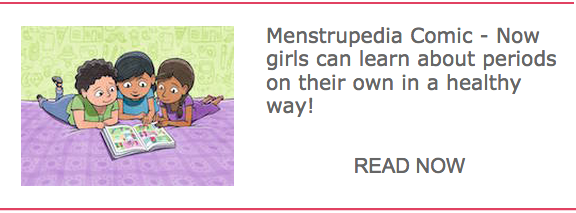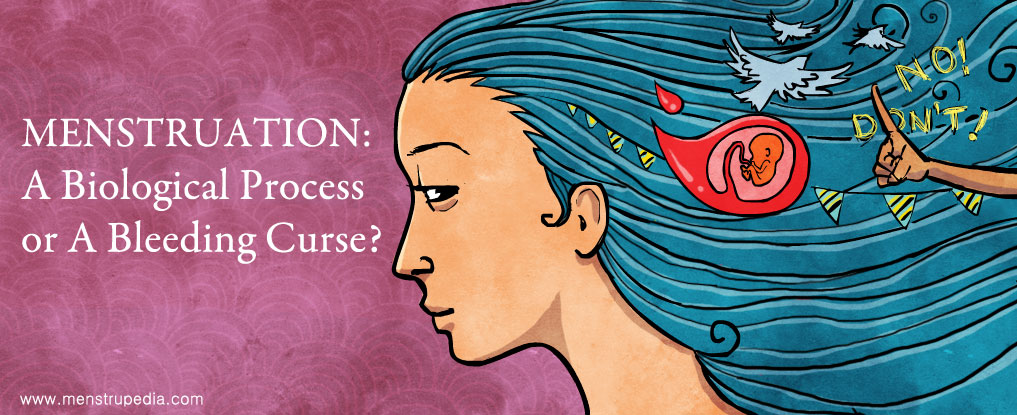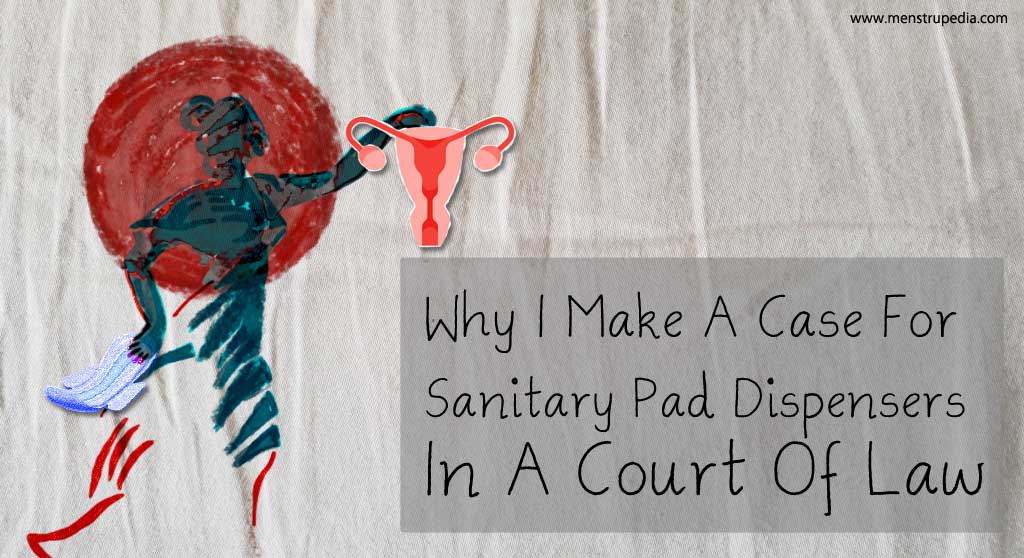The work done by Mythri in spreading awareness on menstruation among adolescent girls is commendable. But this article carries a lot of wrong information and most of the links furnished at the bottom of the referred article are dubious to say the least. I also see that the article is being shared widely in Facebook and hence feel an urgency to set right the misleading ideas being purveyed.
Menarche – often a whisper:
In families, most often, any talk of menstruation is avoided for as long as possible. Often mothers at an appropriate age ‘warn’ their daughters that ‘they are growing up’ and that ‘they have to be careful,’ whatever that may mean. The seriousness and the secrecy surrounding this conversation sets alarm bells ringing and the girl child is left feeling vulnerable and excited at the same time. Menarche is as it is a period of confusion for the child and she naturally picks up on the mother’s reaction. Sometimes mothers tell their daughters that menstruation a ‘curse’ or they tell them to ‘grin and bear it.’ The negativity and anxiety towards menstruation is thus sealed for life. There is one other way that children get to hear about menstruation in schools, often, by a representative of a sanitary product company explaining their product. It is terribly unfortunate that we are dependent on the sanitary product industry as educator for this important period in a girl’s life. There is a very minimal explanation on the physiology of menstruation and absolutely no importance is given to the emotional upheavals that a girl might face. Further to this the shy girls come back to the classroom clutching a sample sanitary napkin ‘generously’ distributed by the company and the boys give a smug look of ‘we know what went on,’ adding to the discomfiture of the girls. There ought to be better ways of doing this!
Myths and Taboos:
Added to this the child would be suddenly faced by an onslaught of the several menstruation myths. It is understandable that without the knowledge about the menstrual process, primitive societies viewed menstruation as alarming and had constructed myths around the process. Different cultures have different taboos and the papers quoted in the end have collected these myths and tried to understand it. One thing that has been noted again and again is that “menstruation continues to be imbued with complex, largely negative meanings.”.

When the myths relating to menstruation framed the menstruating woman as polluting or evil or weak the taboos of prohibition were put in place. Menstrual taboos fall under the categories of social exclusion, prohibition in participating in religious practices and forbiddance of sex. Thus a woman is seen either as
a threat – polluting things or people around her
or she is seen as vulnerable – that she would be affected by whatever around her.
Some cultures had ‘menstrual huts’ where the menstruating women of the society would retire to and stay together for the prescribed number of days, thus not participating in the social activities. A form of this is still practised in some families where the menstruating woman is expected to isolate herself to a corner and avoid her normal routine.
Some cultures tend to project menstruation a sacred process and portrays the woman as a powerful entity. This is again problematic for the reason that it ascribes unnecessary meanings and seeks to control the woman’s body. Also like many things in the world, the apparent similarity between the Lunar cycle and menstrual cycle is just random and there is absolutely no compulsion for anyone to contrive and find meaning in that. Moreover a lunar cycle is actually 29.5 days and the menstrual cycle varies greatly among women from about 21 days to 35 days and as you can see there is hardly any coincidence in that. Meta analysis conducted in 1996 revealed no correlation between human menstrual cycle and lunar cycle.
Myths are powerful ways to perpetuate a society’s practices and are interesting tools to understand how societies were constructed in the past. When children question the taboos associated with menstruation it would make sense to explain some of the common myths from around the world and how the taboos are a result of these myths. One can then explain how such taboos are superfluous when we understand the science of menstruation as well as the sociological processes that gave rise to those myths. When young girls listen to the diverse stories they may probably understand that there cannot be obviously much truth in all these myths and that they do not have to worry about ignoring them. For example it is a jewish custom to slap the girl when she announces her menarche. The explanation given was that the mother was ‘slapping sense’ into the daughter and indirectly telling her to be careful or otherwise she will get pregnant! But you can imagine the distress and the shame that the young child being slapped would have felt.
I will now attempt to answer the questions mentioned in the article under examination:
“Why am I not allowed to visit a temple during my period?”
During ancient days when people did not understand the process of menstruation, they feared it and thought it was polluting. All over the world there are several myths connected to menstruation. However at this age when there is so much of advancement in science and technology and everybody has access to genuine information, it is not right to imbue meaning to these myths and persist in believing in it. Knowing the diverse world wide myths would help you to understand that the present taboos are the remnants of ancient beliefs. However coming to your question since a temple is considered by some to be a sacred place they thought that the temple would be polluted by a menstruating woman. But this is not a practice followed in all the religions and so you are free to arrive at your own conclusions.
“Will the pickle really spoil if I touched it during menstruation?”
I will ask a question in turn. What does spoiling of a food mean and what is the means by which a food gets spoilt? Most often food gets spoilt because of bacterial or fungal growth. If pickle is touched by anybody with wet hands there is a chance of contamination. However if you hold the pickle container during menstruation, what process could occur for it to get spoilt? It is just a myth. Maybe you can conduct an experiment and see for yourself. There are similar injunctions against watering plants – tulsi in particular, warning that it might wither. There is no truth in that and it can be easily verified. When someone says that to you first ask them for a reason and don’t accept ‘well, that is the way it is usually done’ for an answer. Next explain to them the concepts clearly and confidently. It might not have an immediate impact but be consistent and don’t let people make you believe that you are in anyway polluted while you are menstruating.
“Akka, why do they tell us not to touch anyone, to sit in a separate room and eat from a separate plate when we get our period?”
Have you asked them the reason for such isolation? Most often the reason given would be that they want you to rest during menstruation. Then why all these taboos? Why can’t you rest comfortably without going through all the humiliation of being isolated. We do not avoid going to school or college or work during the days we are menstruating. We travel, we study and we continue to work. If we feel the need to rest, we may be allowed to do so at our terms. What is the need to shove us in a corner and treat us as if we are filthy and that our very touch would affect others. It is terribly sad that the patriarchal society has succeeded in making the women believe that they are really capable of polluting. It has been told repeatedly over generations and our mothers and grandmothers have started believing it too. But share with them a myth or two from other countries and tell them that you can explain the process of menstruation. And again tell confidently that there is nothing polluting about menstruation and that it is a normal physiological process gone through by half of humanity. It is time to talk about it openly and whenever you get a chance talk about it with your friends. Try to create awareness and be careful that you don’t assist in perpetuating the myths.
Maybe these answers are not comprehensive enough. Maybe these answers might make the girls uncomfortable. And it may even make them rock the status quo which might be perceived as revolutionary. Indeed, when the norm is myth propagation, reason is an act of revolution. But these are informed answers and they seek to present the facts to the children without being judgmental or without making them feel ashamed of themselves. And if we hope to help a group of girls grow up without being embarrassed of their bodies, we need to go the extra mile to educate ourselves and share the knowledge.
A good source on issues relating to menstruation:http://menstrupedia.com/
References:
1)http://link.springer.com/article/10.1023/A:1016037618567
2)http://www.asphodel-long.com/html/menstrual_taboos.html
3)http://ispub.com/IJWH/5/2/8213
4)http://academic.evergreen.edu/curricular/astro/astro2001/projects/luna/menstruation/mencycle.htm
6) The Curse: A Cultural History of Menstruation
9) http://www.wunrn.com/news/2009/06_09/06_15_08/061509_india.htm
A longer version of this article was first published here.
Author: Geetha TG
Geetha TG is a humanist and freethought blogger. She is a member of Chennai Freethinkers – a regional Chapter of Nirmukta, an organization dedicated to promoting Science and Freethought in India. She has been involved in organizing workshops, meetings and seminars on science and humanism. Geetha is also a founding member of GAP – Gender Awareness Promoters, a group dedicated to promoting gender sensitivity among young minds. She with her team speaks to school children on gender issues.






